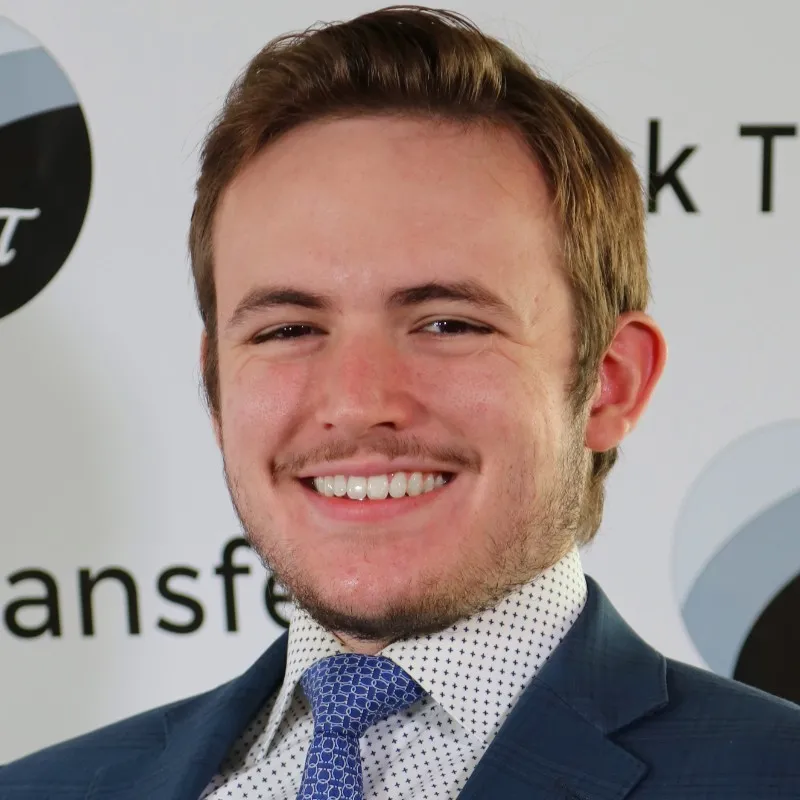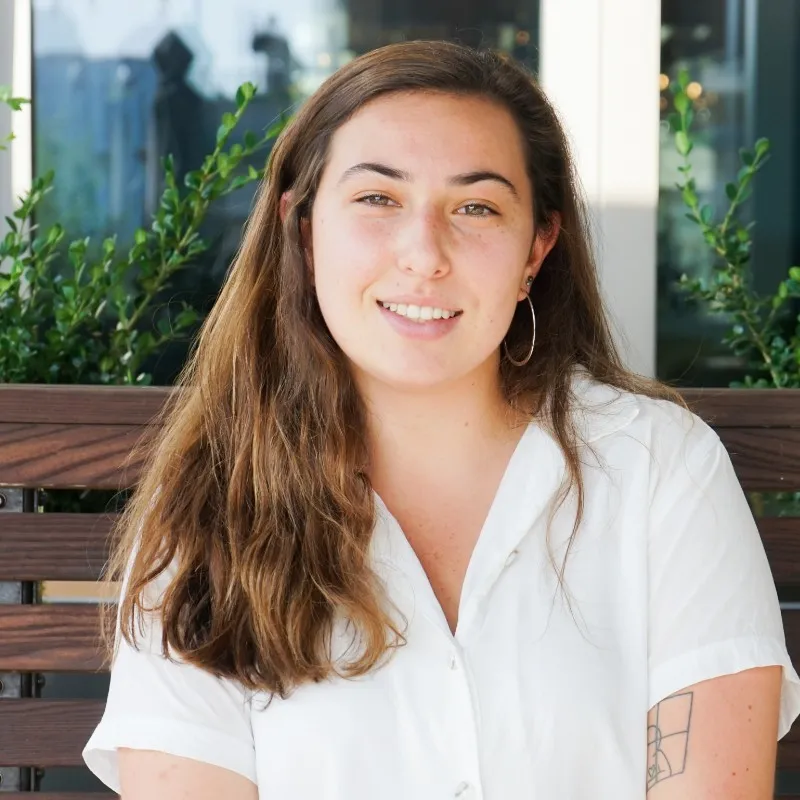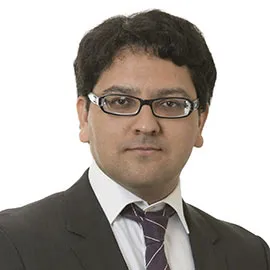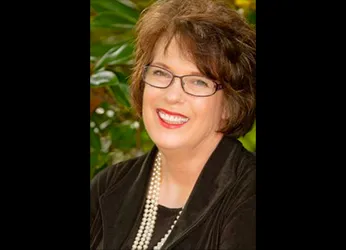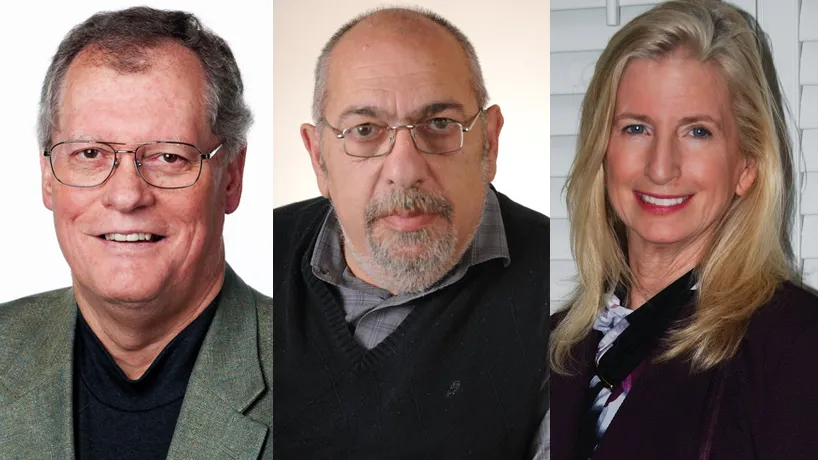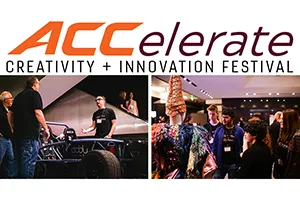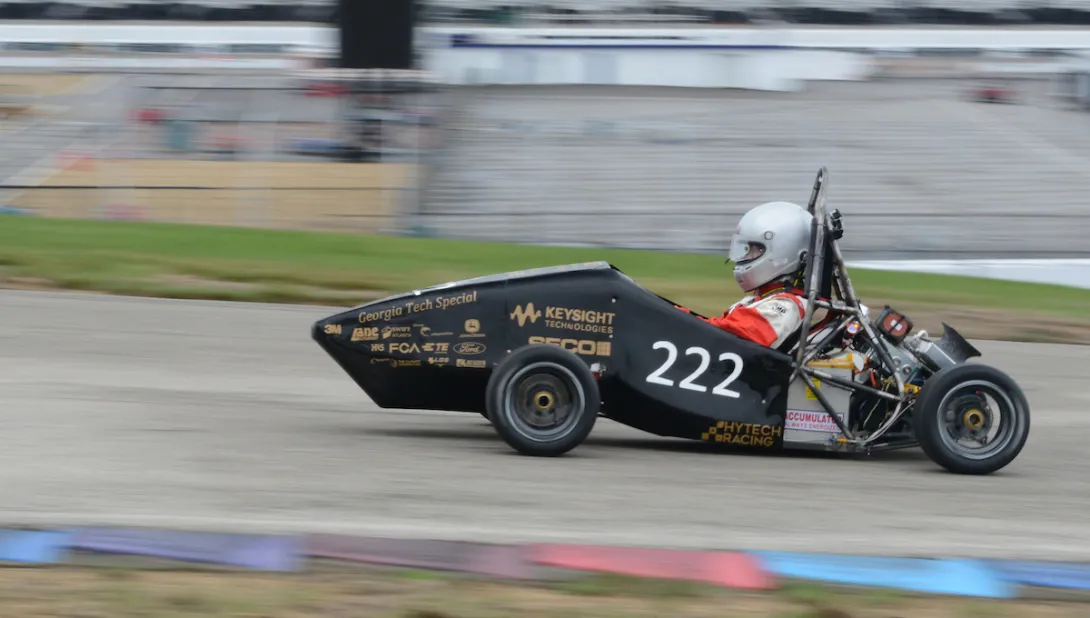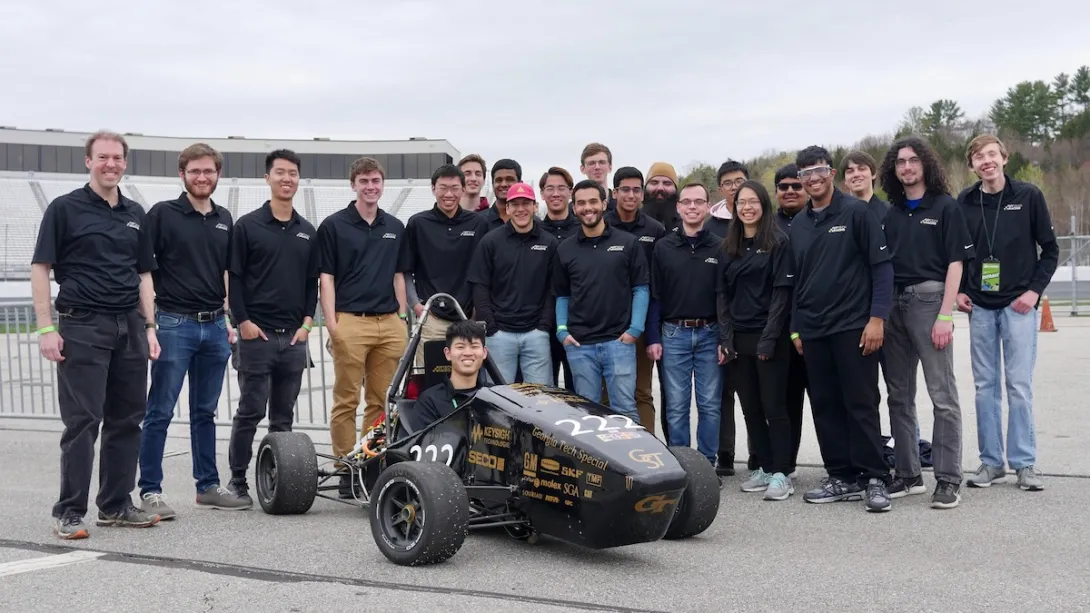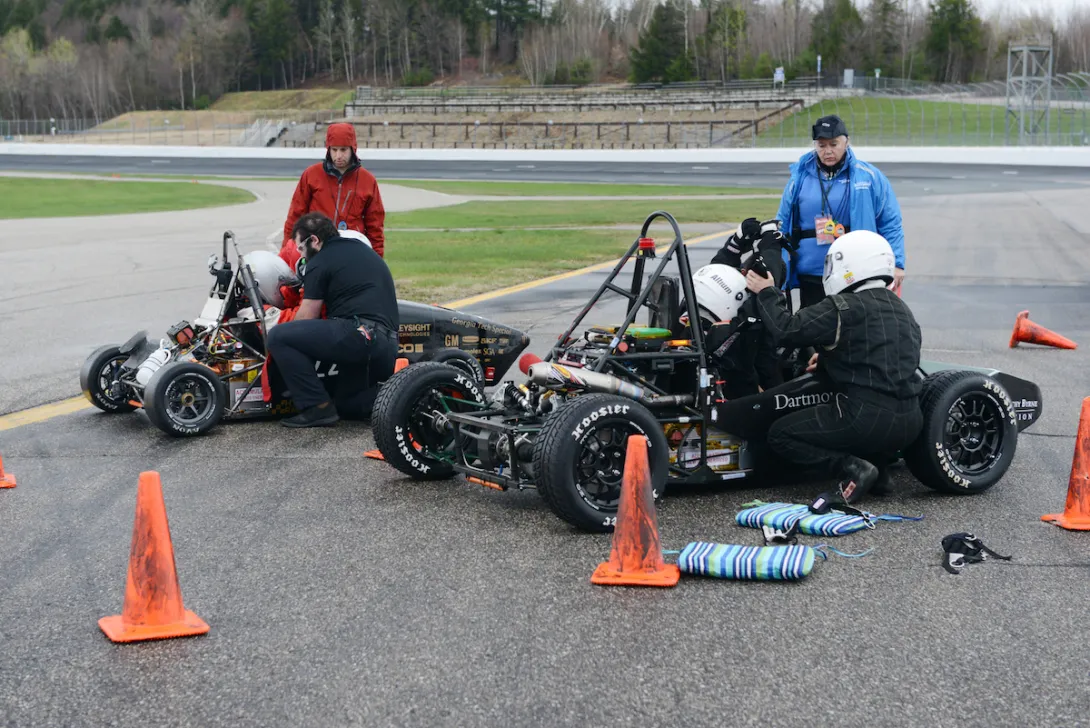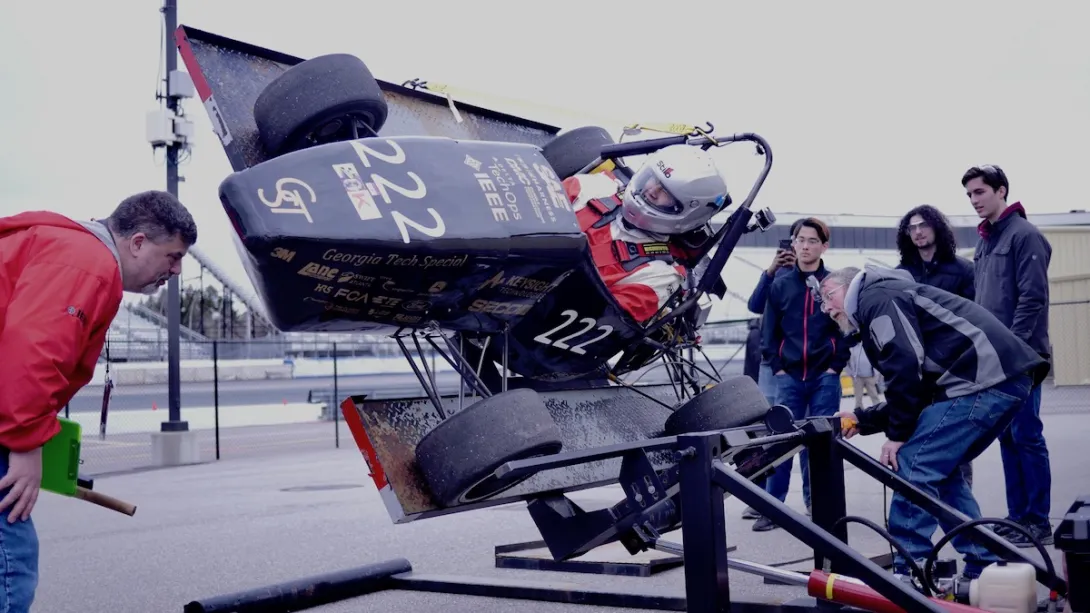Nov. 16, 2021
By Frida Carrera
Several months after the completion of the 2021 InVenture Prize Competition, we caught up with John Wooten to see what he’s been up to! In 2021’s competition, John’s innovation Block Transfer, a decentralized stock transfer agent protocol for global financial markets, placed as a finalist.
Today, John Wooten has been actively working to grow Block Transfer by securing final SEC approval, acquiring funding by US Bank, and submitting utility patents. He believes that by combining blockchain tech with traditional financial markets, we can fundamentally change the world. John describes his experience as a finalist in the competition as being invaluable and advises, “We didn't know we could partake given prior admission to CX. Biggest advice is to just TRY!”
You can learn more about Block Transfer here: https://www.blocktransfer.io/consult
To learn more about the upcoming InVenture Prize Competition visit https://inventureprize.gatech.edu/ . Registration closes on Jan. 19.
Nov. 04, 2021
By Frida Carrera
After almost a year since the completion of the 2021 InVenture Prize Competition, we caught up with finalist Sammie Hasen to see what she’s been up to over the past couple of months! For 2021’s competition, Sammie’s invention, BCase, placed as a finalist for its accessible, discreet, and secure birth control storage that attaches directly to the back of your phone.
Today, Sammie successfully launched BCase in New York City on World Contraception Day as one of five brands featured by Medsur Inc, the consumer goods company founded by Sammie. On September 26th, Medsur was even invited by The Pill Club, a leading contraceptive company, to participate in the launch of their uterus-shaped vending machines in New York. Medsur now continues to garner the attention from many leading health companies in the birth control space and this is just the beginning for Sammie.
“I plan to keep growing Medsur and follow our vision of creating a suite of innovative products for uterus owners. I am slowly growing the team, and I have now added the incredible Alexa Graham as COO. She is a rockstar, and she will help me grow Medsur to be all that we envision it to be!”, she explained.
Sammie adds that Medsur is always looking for new ambassadors to join the team and encourages anyone passionate about the femtech space and building innovative products to consider signing up!
You can learn more about Medsur and BCase on their website here: https://www.medsurinc.com/
To learn more about the upcoming InVenture Prize Competition visit https://inventureprize.gatech.edu/ . Registration closes on Jan. 19.
Aug. 18, 2021
The Goldia Mae Burchfield Memorial Scholarship is open for contributions again this year. It was established last year to support students in pursuit of their undergraduate degree. Ms. Burchfield, mother to Brook Byers Institute for Sustainable Systems Financial Manager, Gay Burchfield, died of COVID-19 on June 8th, 2020, at the age of 80, in Starkville, Mississippi. She lived a life of service to those in her community, with a particular emphasis on education.
The Burchfield family selected sophomore Catherine Shamanski in the College of Psychology to receive a $200 scholarship. Shamanski will serve as a Team Leader in a section of the GT-1000 class, helping incoming first year students to find their footing on campus.
Ms. Goldia was years ahead of her time. During the segregation era, her family moved from rural Mississippi to a larger town where she could pursue her high school education, which she completed in 1958. She wanted to join the military only to discover that women of color were not eligible to serve. She worked as a part-time custodian in a local bank for 35 years, as well as numerous odd jobs to care for her family and her community. She and her husband had several small businesses in their hometown, one of which was “Burchfield Recreation,” aka “The Pool Hall.” The pool hall also served as an ad-hoc after-school care for many families with working parents. Ms. Goldia provided meals, advice, and discipline, sometimes working extra odd jobs to finance those additional expenses. She would also put together care packages with stipends for the young people of her community who were college bound. If asked what her greatest achievements were, she would say that she was a great mom, provided free meals to many, greeted everyone with a heartfelt smile, and genuinely cared for everyone she encountered.
Donations by check should be made payable to the Georgia Tech Foundation, Inc., with "Goldia Mae Burchfield Memorial Scholarship" noted on the check or in a separate note, and should be mailed to: Georgia Tech Foundation, Inc., 760 Spring Street, NW, Suite 400, Atlanta, GA 30308.
On-line gifts can be made at https://development.gatech.edu, using the ‘GIVE NOW’ button and following directions provided. In the ‘Other Designation’ box, enter “Goldia Mae Burchfield Memorial Scholarship.” Each donor will be acknowledged by the Georgia Tech Foundation, and a list of all donors will be shared with the Burchfield family.
News Contact
Brent Verrill, Research Communications Program Manager, BBISS
Jan. 19, 2021
Adolfo Rocco, a graduate student assistant studying under SCL faculty members Alan Erera and Alejandro Toriello, recently earned his PhD after successfully defending his thesis "Service Network Design for Parcel Trucking". Adolfo's research focuses on applications and technologies that use optimization techniques to solve complex real-world problems. Its relevance to supply chain and logistics revolves around last-mile logistics, an essential part of the economy involving the transportation of goods from producers to end-consumers. As a result of the explosive growth of e-commerce in the past decade, e-commerce sales ratios have nearly tripled globally and demand for last-mile delivery is expected to grow 78% globally by 2030. One of the main objectives of last-mile delivery logistics is to deliver packages as affordably, quickly, and efficiently as possible.
Adolfo’s dissertation research involved a large-scale package express service network design in collaboration with one of the largest courier companies in China. The objective of the project was to support the growth and evolution of the intercity logistics network (expanding coverage, offering tighter service levels, and improving efficiency). The challenge was to build flat network models given large problem size, time requirements for package movement, and consideration for relevant operational constraints. The first phase of the project focused on a detailed intracity scheduling service network design problem for megacities and developing a simple rated-based model to design shuttle and commodity paths. The next project phase focused on linehaul consolidation planning, and specifically, determining the most cost-effective hubs for cross-docking activities through developing decomposition greedy approaches that employ smaller tractable integer programming problems. In the final project phase, the focus was on a freight flow plan that conforms generalized in-tree structure and which basically generalize the in-tree concept. A main goal of the project was to build a large-scale plan when hub selection is not a concern, time requirements are relevant, and conformity and enforcement of a generalized in-tree structure that enhances operational realism is accomplished.
When asked why Rocco was interested in this specific research area, he commented, "I am passionate about employing operations research techniques to solve challenging real-world problems. I strongly believe that city logistics plays a major role in the economy because of the growth in world population and e-commerce in past years. City logistics directly impacts the lives of people and, if not addressed correctly, can have a negative impact on quality of life. Advances in scientific methodologies and computer capabilities permit us to employ enabling cutting-edge technology to tackle these challenges appropriately. This is an exciting field that I yearn more people get involved with."
Before being accepted into the PhD program, Adolfo worked for five years at an operations research consulting firm in Chile building optimization models for a Workforce Management technology system. In the summer of 2019 he interned at Delta, developing an approach to increase revenue through routing optimization. In the summer of 2020, Rocco interned with the worldwide capacity planning operations research group at Amazon, enhancing scheduling models for customer service agents. After earning his PhD, Adolfo will join Amazon as a Research Scientist working with the team he previously interned with.
News Contact
web@scl.gatech.edu
Jul. 17, 2020
The Goldia Mae Burchfield Memorial Scholarship was established to support students in pursuit of their undergraduate degree. Ms. Burchfield, mother to Brook Byers Institute for Sustainable Systems Financial Manager, Gay Burchfield, died on June 8th, 2020, at the age of 80, in Starkville, Mississippi of COVID-19.
Ms. Burchfield, lived a life of service to those in her community, with a particular emphasis on education. During the segregation era, her family moved from rural Mississippi to a larger town where she could pursue her high school education, which she completed in 1958. She worked as a part-time custodian in a local bank for 35 years, as well as numerous odd jobs to care for her family and her community. Ms. Burchfield would put together care packages with stipends for the young people of her community who were college bound. She also self-funded an after-school meal and care program to help support families so that kids could stay in school, and parents could remain employed. If asked what her greatest achievements were, she would say that she was a great mom, provided free meals to many, greeted everyone with a heartfelt smile, and genuinely cared for everyone she encountered.
Donations by check should be made payable to the Georgia Tech Foundation, Inc., with "Goldia Mae Burchfield Memorial Scholarship" noted on the check or in a separate note, and should be mailed to: Georgia Tech Foundation, Inc., 760 Spring Street, NW, Suite 400, Atlanta, GA 30308.
On-line gifts can be made at https://development.gatech.edu, using the ‘GIVE NOW’ button and following directions provided. In the ‘Other Designation’ box, enter “Goldia Mae Burchfield Memorial Scholarship.” Each donor will be acknowledged by the Georgia Tech Foundation, and a list of all donors will be shared with the Burchfield family.
Application and award selection criteria have not yet been decided upon for this scholarship, since it was so recently established. However, the Burchfield family, in conjunction with the Georgia Tech Foundation, will arrange these details soon.
News Contact
Brent Verrill, Research Communications Program Manager, BBISS
Jul. 14, 2020
Dr. Christine Ries has been invited to serve on a Review Panel for the New NSF Future Manufacturing Program on Eco-Manufacturing.
This new multidisciplinary NSF program supports fundamental research and education of a future workforce that would enable the types of manufacturing that are not existent yet or are at such early stages of development they are not yet viable (Future Manufacturing). Reviews considered impacts on the economy, workforce, human behavior, and society at large.
News Contact
Professor Christine Ries
christine.ries@econ.gatech.edu
May. 28, 2020
IDEaS recently awarded a series of grants to stimulate the research efforts of Georgia Tech’s brightest minds in data science and related disciplines. Faculty and student research programs targeted for IDEaS awards must demonstrate research goals that will be highly cross-disciplinary and emphasize how data science can assist in related research areas.
The Data Science Research Scholarships program will support scholarships for the Spring 2020 semester and focus on Ph.D. student research that enables new collaborative research or adds a data science dimension to established research projects. Each scholarship will fund 50% of the cost of a GRA appointment, with the project PI funding the remaining 50%.
Data Science Research Scholarships 2020 Awards
- JC Gumbart (Physics) & David Sherrill (Chemistry): Force-field Development to Enable Simulations of Xeno-nucleic Acids
- Xiuwei Zhang (CSE) & Haesun Park (CSE): Development of an Integrative Clustering Method for Single Cells
- Vince Calhoun (ECE) & Audrey Duarte (Psych): The Chronnectomics of Memory
- Annalisa Bracco (EAS), Jie He (EAS) & Matt J. Kusner (University College London): Machine-learning Techniques for Cloud Modeling
- Toyya Pujol-Mitchell (ISYE), Nicoleta Serban (ISyE) & Constantine Dovrolis (CS): Network Weight Prediction Using Node Attributes
- Xiaofan Liang (City & Reg Planning), Clio Andris (City & Reg Planning) & Diyi Yang (IC): Advancing Metrics for Spatial Social Networks in the Era of Big Data
- Omar Asensio (Public Policy): Do Micromobility Options Reduce Traffic Congestion? Quasi-experimental Evidence from Uber Movement Data
- Constantine Dovrolis (CS) & Kelly F. Ethun (Emory/Yerkes): Connections Between Social Behavior and Food Intake in Rhesus Macaques
- Diyi Yang (IC) & Mai ElSherief (IC): Defining, Characterizing, and Detecting Implicit Discriminatory Speech Online
- Umakishore Ramachandran (CS) & Zhuangdi Xu (CS): Generating Labeled Vehicle Tracking Dataset for Large-scale Geo-Distributed Camera Networks
- Surya R. Kalidindi (ME/CSE/MSE) & Christopher Saldana (ME): Advanced Materials-Manufacturing Data Curation
- Agata Rozga (IC), Thomas Ploetz (IC) & external: Annotation of Datasets from Severe Behavior Treatment Program at the Marcus Autism Center
Data Science Partnership 2020 Awards
- Diyi Yang (IC): Allen Institute for AI and University of Washington
- Josh Kacher (MSE): Lawrence Livermore National Laboratory
- Rachel Cummings (ISyE): Georgetown University and U.S. Census Bureau
Data Science Speaker Travel Awards supports visits to the Georgia Tech campus by external experts in the areas of data science foundations or data-driven discovery in any discipline. Funds may be used to host a guest speaker for the IDEaS seminar series, or to participate in another on-campus event, conference, or seminar series. Awardees’ invited guests are experts in either mathematical data science or data science engineering.
Data Science Speaker Travel 2020 Awards
- Betsy DiSalvo (IC): Data Work Civic Engagement Panel
- Diyi Yang (IC): Natural Language Processing/Computational Social Science Seminar
May. 12, 2020
Scientific endeavors across Georgia Tech are broad, deep, and varied — a fact underscored last week when the National Academy of Sciences announced three Tech scholars among its newest members.
Marilyn Brown is one of the nation’s top analysts of clean energy policy; Randall Engle is a leader in understanding individual differences in memory and attention; and Arkadi Nemirovski has helped shape the field of continuous optimization.
Each now joins an elite group of the nation’s foremost scientists in a historic moment for the Institute: It’s the first time three scientists from Tech have been elected to the Academy in a single year.
“The election of Georgia Tech faculty members from across multiple disciplines into the National Academy of Sciences is extraordinary,” said Rafael L. Bras, provost, executive vice president for Academic Affairs, and K. Harrison Brown Family Chair. “We are incredibly proud and congratulate Professors Brown, Engle, and Nemirovski on this well-deserved honor. This distinction is a testament to their significant contributions and an honor that recognizes that critical research happens at the intersection of disciplines.”
Election to the National Academy of Sciences is among the highest honors a scientist can receive, recognizing “distinguished and continuing achievements in original research,” as the Academy puts it. It has been reserved for just 2,403 people in the United States. Nominations for new members can come only from current Academy members.
“In the hierarchy of scientific acknowledgment, the only things higher are the Presidential Medal of Freedom and the Nobel Prize,” said Engle, professor in the School of Psychology. “In my wildest dreams, I never imagined it for myself.”
Engle studies the nature of working memory and its relationship to attention control. At its most basic, his work focuses on how people differ in their ability to concentrate on a single task. Understanding these differences helps us understand why individuals’ cognitive performance varies.
Engle came to Georgia Tech in 1995 to lead the School of Psychology. After 13 years, he stepped down to create the Georgia State University/Georgia Tech Center for Advanced Brain Imaging. His work has been influential in social and developmental psychology, emotion, and psychopathology, among other areas. He is a fellow of the American Psychological Association and the American Association for the Advancement of Science.
“I don’t know of any successful scientists who do what we do for the glory. We are driven by questions and are so fortunate to have jobs where people actually pay us to spend our lives looking through the metaphorical microscope,” Engle said. “At the same time, we all love having our work acknowledged and respected by our scientific heroes. That is what this feels like: People who I have read about in my field since I was an undergraduate are saying that my work has value.”
Like Engle, Nemirovski expressed surprise at his election to the Academy, despite more than five decades of contributions to optimization theory and algorithms.
“While I respect my professional achievements, I do not value them as matching the honor,” said Nemirovski, who came to Georgia Tech in 2005 and is the John Hunter Chair and Professor in the H. Milton Stewart School of Industrial and Systems Engineering.
Yet he is credited with several significant achievements in the field of convex optimization — the Ellipsoid algorithm (with D. Yudin), mirror descent, interior point methods for nonlinear convex problems (with Y. Nesterov), and robust optimization (with A. Ben-Tal) — and in non-parametric statistics (with A. Juditsky).
In fact, Nemirovski credited his collaborators with helping him build an impactful career.
“The excellent professional training I got under supervision of Professor Eugene Shilov at the Department of Mechanics and Mathematics of Moscow State University, and the honor and privilege to communicate and, in many cases, to collaborate with outstanding colleagues — Boris Polyak, Rafail Khasminskii, Yuri Nesterov, Aharon Ben-Tal, Anatoli Iouditski, Alexander Shapiro, David Donoho, Stephen Boyd — their influence made me what I am as a professional,” he said.
Nemirovski also is a fellow of the National Academy of Engineering and the American Academy of Arts and Sciences.
Brown has established herself as an international leader in the analysis of clean energy policies. She’s a pioneer in incorporating behavioral and social science principles into complex energy-engineering models that are used to evaluate policy proposals and to assess opportunities such as the size of the energy-efficiency gap in the United States.
She developed an approach as a regulator of the Tennessee Valley Authority that characterizes energy efficiency in terms of a power plant — in essence, the size, cost, and reliability of the plant that would not have to be built if companies took steps to conserve energy. She also developed carbon accounting methods at Georgia Tech that were applied to the first carbon footprint assessments of the nation’s largest 100 metropolitan areas.
“Being elected to the National Academy of Sciences is a great honor,” said Brown, Regents Professor and Brook Byers Professor in Sustainable Systems in the School of Public Policy. “It is also a great testament to the outstanding faculty and students across Georgia Tech, who are fostering the kind of sustainable energy systems and policies that will help the world step back from the brink of climate disaster.”
Brown arrived at Georgia Tech in 2006 after establishing herself at the Oak Ridge National Laboratory as a national leader in the analysis and interpretation of energy futures in the United States. A year later, she and her co-authors won the Nobel Peace Prize for their work on the Intergovernmental Panel on Climate Change Working Group III Assessment Report on Mitigation of Climate Change.
Earlier this year, Brown also was elected to the National Academy of Engineering.
“Colleagues like Professors Brown, Engle, and Nemirovski are what makes Georgia Tech such a special place,” Bras said. “They are true scholars and dedicated teachers, and they are examples to their students, their friends, and colleagues. We all rejoice with them.”
Apr. 13, 2020
Georgia Tech Arts is still seeking projects for the 2021 ACCelerate: ACC Smithsonian
Creativity and Innovation Festival in Washington, DC. All Georgia Tech students, faculty, and staff are invited to apply by May 1, 2020.
Even if you do not have a finished project exploring the intersection of science,
engineering, art, design, and technology, we encourage you to speak with Es
Famojure at esther.famojure@arts.gatech.edu about your concepts.
Learn about Georgia Tech's 2019 participants for some inspiration.
The festival brings together all institutions included in the Atlantic Coast Conference to
celebrate creativity and innovation with a specific focus on science, engineering, arts, and
design. It will be held April 9 -11, 2021 at the Smithsonian National Museum of American
History.
Submit your project for consideration by May 1, 2020 to be considered.
News Contact
Es Famojure
esther.famojure@arts.gatech.edu
Jun. 24, 2019
For the second year in a row, HyTech Racing has brought the first-place trophy from Formula Hybrid back to Georgia Tech. The team outperformed its previous record, running in the Acceleration and Autocross events for the first time at this competition and placing first in the Autocross event with a 44.092 second run. With their 368 lb vehicle, the lightest at the competition, HyTech was the only team to finish the 44 km Endurance course this year, beating the University of Vermont’s previous 01:25:15 record with a 01:15:56 track time and becoming the second electric team to ever complete the 44 km Endurance course in Formula Hybrid history.
HyTech Racing is Georgia Tech’s Formula Student electric vehicle engineering team. On this team, students from a wide array of disciplines, from Mechanical Engineering to Aerospace Engineering, Electrical Engineering, and Computer Science, work together year-round to design fully electric race cars. “The work that is happening on teams like HyTech is an important part of the experiential learning here at Georgia Tech,” said Dr. Samuel Graham, Eugene C. Gwaltney, Jr. Professor and Chair of Georgia Tech’s Woodruff School of Mechanical Engineering. Working on this multidisciplinary team, students learn to work effectively with deadlines and budgets, solving real-world engineering and business problems before graduating into the workforce with valuable experience applicable to their industry.
Closing out its 13th competition year, Formula Hybrid brings together students from around the world each May at the New Hampshire Motor Speedway to identify the best-engineered and best-performing electric and hybrid open-wheel Formula racing-style vehicles conforming to the competition rules. Before testing the dynamic performance of the vehicle, each team must pass through a rigorous scrutineering process. Engineers, many from the automotive industry, inspect each vehicle to ensure that it meets competition rules and can be safely operated.
The competition also measures the engineering behind each team’s vehicle. Georgia Tech’s team defended the design methodologies behind its new vehicle, where significant engineering effort was put into reducing the weight of components compared to the team’s vehicles from previous years. “There's an old adage in racing that goes 'more power makes you faster in the straights, losing weight makes you faster everywhere',” said Sam Gilmer, Chief Engineer of HyTech Racing. “Being light means your tires are more efficient and you have less momentum and accelerate more quickly.” After building a 413 lb vehicle last year, the team worked towards a goal of building a 380 lb vehicle in 2019, exceeding this goal with an official vehicle weight of 368 lb.
While the team won the design portion of the competition, it also defended its project management strategy, placing second in the category. “Working with over 60 students to engineer such a complex vehicle takes a significant amount of planning and oversight,” said Nathan Cheek, Team President. “We focused this year on making a very lightweight and tightly packaged vehicle, so facilitating communication between subteams was critical for ensuring that everything would fit together and work together.”
Vehicle performance is measured through a number of dynamic events. First, each vehicle’s acceleration capabilities are measured at the 75 meter Acceleration track. Second, vehicle handling is put to the test on the Autocross course. Finally, the ability of each vehicle to run reliably is tested through the 44 km Endurance event. HyTech placed second in the Acceleration event with a 5.28 second time and won the Autocross event with a 44.092 second run. On the Endurance course, the team beat out Princeton University, The University of Vermont, and Tufts University, completing more than twice the number of laps than the second-place team. As the only team to finish all 44 km of the Endurance event this year, Georgia Tech’s team set a new track time record of 01:15:56, beating the previous record of 01:25:15 held by The University of Vermont and cementing themselves as the second fully electric team to ever finish the 44 km course.
HyTech Racing finished the Formula Hybrid competition with a 262 point lead, taking home 899 points out of 1,000. “Next year we are going to focus on making the car even lighter and better-performing using data we gathered from this year's success,” said Yvonne Yeh, incoming Team President for the 2020 school year. The team plans to work iteratively, building a new vehicle with updates only to the systems that will most improve the car’s performance. “It’s important to update these vehicles methodically year-to-year,” said Nathan Cheek. “Making calculated engineering updates to specific vehicle subsystems is the best way to ensure we have plenty of testing time on our new vehicle before taking it to a competition.”
News Contact
Nathan Cheek
ncheek@gatech.edu
Pagination
- Previous page
- 6 Page 6
- Next page
